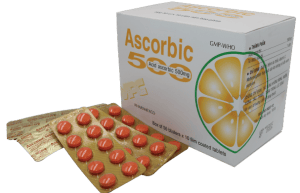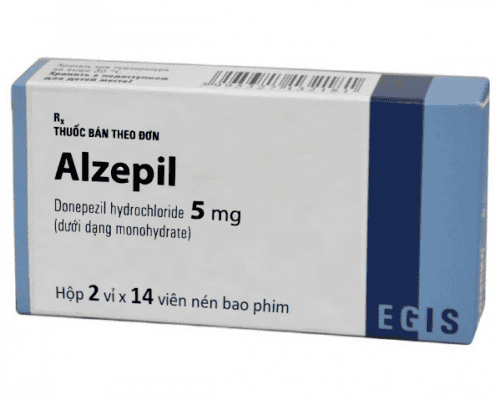This is an automatically translated article.
Ginkgo is known as an antioxidant to slow the progression of dementia, improve blood circulation, which may help the brain, eyes, ears and feet function better. Ginkgo seeds contain substances that can kill bacteria and fungi that cause infections in the body.1. What is a ginkgo tree?
Ginkgo is one of the oldest living tree species dating back more than 200 million years. It is a plant native to China, Japan and Korea, and has been cultivated in Europe since about 1730 and in the United States since about 1784.What does the ginkgo tree contain? The most useful components of ginkgo are flavonoids, powerful antioxidants, which improve circulation by dilating blood vessels and reducing the "stickiness" of platelets.
Most ginkgo products are extracted from fan-shaped leaves. Ginkgo leaves are commonly used by mouth to treat memory disorders including Alzheimer's disease. However, raw or roasted ginkgo biloba seeds should not be eaten as it can be toxic.
Ginkgo is commonly available as a ginkgo biloba supplement, extract, capsule or tea. In manufacturing, ginkgo leaf extract is used in cosmetics. In foods, roasted ginkgo seeds with the pulp removed are a popular delicacy in Japan and China.
For ginkgo seeds, there is no standard dosage when using this seed. However, in medical studies, almost all clinical trials have used ginkgo biloba extract standardized to 24% flavone glycosides and 6% terpene lactones. A common dose in people with dementia is 40 milligrams of the extract three times daily. To improve cognitive function in healthy people, studies have used between 120 milligrams and 600 milligrams of the extract per day.

Hầu hết các sản phẩm từ cây bạch quả được chiết xuất từ lá hình quạt
2. What is the effect of ginkgo tree?
Reduces Anxiety and Stress Studies have shown that taking ginkgo biloba extract for 4 weeks can reduce symptoms of anxiety.Improves memory Some studies show that taking ginkgo for a year improves some symptoms of Alzheimer's disease or other dementia. A dose of 240 mg per day may work better than a dose of 120 mg per day.
Effective for eyesight in people with diabetes For people with diabetic retinal damage, taking ginkgo leaf extract for 6 months can improve vision.
Relieve foot pain while walking Foot pain when walking is related to poor blood flow (peripheral vascular disease). So, taking ginkgo leaf extract helps people with poor blood circulation in their legs to be able to walk without pain. Ginkgo biloba supplements may also reduce the need for surgery. However, people with this condition need to take ginkgo for at least 24 weeks to see an effect.
Relieves Premenstrual Syndrome (PMS) Taking ginkgo leaf extract has been shown to reduce breast tenderness and other symptoms associated with PMS when starting on the 16th day of the menstrual cycle and continuing. Continue until the 5th day of the next cycle.
Reduces symptoms of schizophrenia Research shows that taking ginkgo daily in combination with antipsychotic medication for 8-16 weeks can reduce schizophrenia symptoms. At the same time,
it can also reduce some of the side effects associated with psychiatric drugs.
Improve symptoms of dizziness and balance disorders Taking ginkgo leaf extract by mouth seems to improve symptoms of dizziness and balance disorders.

Việc uống chiết xuất từ lá bạch quả giúp những người có lưu thông máu kém ở chân có thể đi lại mà không bị đau
3. Side effects when using ginkgo
Most ginkgo supplements are derived from the leaves. Ginkgo seeds can be dangerous, especially when roasted or eaten raw. Ginkgo leaf supplements cause some side effects such as:In some people, ginkgo leaves can cause headache, dizziness, heart palpitations, nausea, burning, and diarrhea. An allergy to ginkgo causes a rash or other more serious side effects; For patients who are about to undergo surgery and need to use ginkgo, they should consult their doctor. Ginkgo should not be used if you have a history of medical conditions such as diabetes, epilepsy, or fertility problems. Do not eat the untreated parts of the ginkgo tree, as uncooked ginkgo seeds can cause convulsions and death; In case you are taking any medications or supplements on a regular basis, consult your doctor before using ginkgo. Ginkgo may interact with blood thinners, aspirin, NSAID pain relievers, antiplatelet drugs, anticonvulsants, antidepressants, diabetes medications, medications that affect the liver, and other medications. Supplements like garlic, saw palmetto, reduce the effectiveness of anticonvulsant therapy, etc. Given the potential risks, ginkgo biloba is not recommended for use in children, pregnant or lactating women. .
Please dial HOTLINE for more information or register for an appointment HERE. Download MyVinmec app to make appointments faster and to manage your bookings easily.
Reference source: webmd.com; mayoclinic.org












